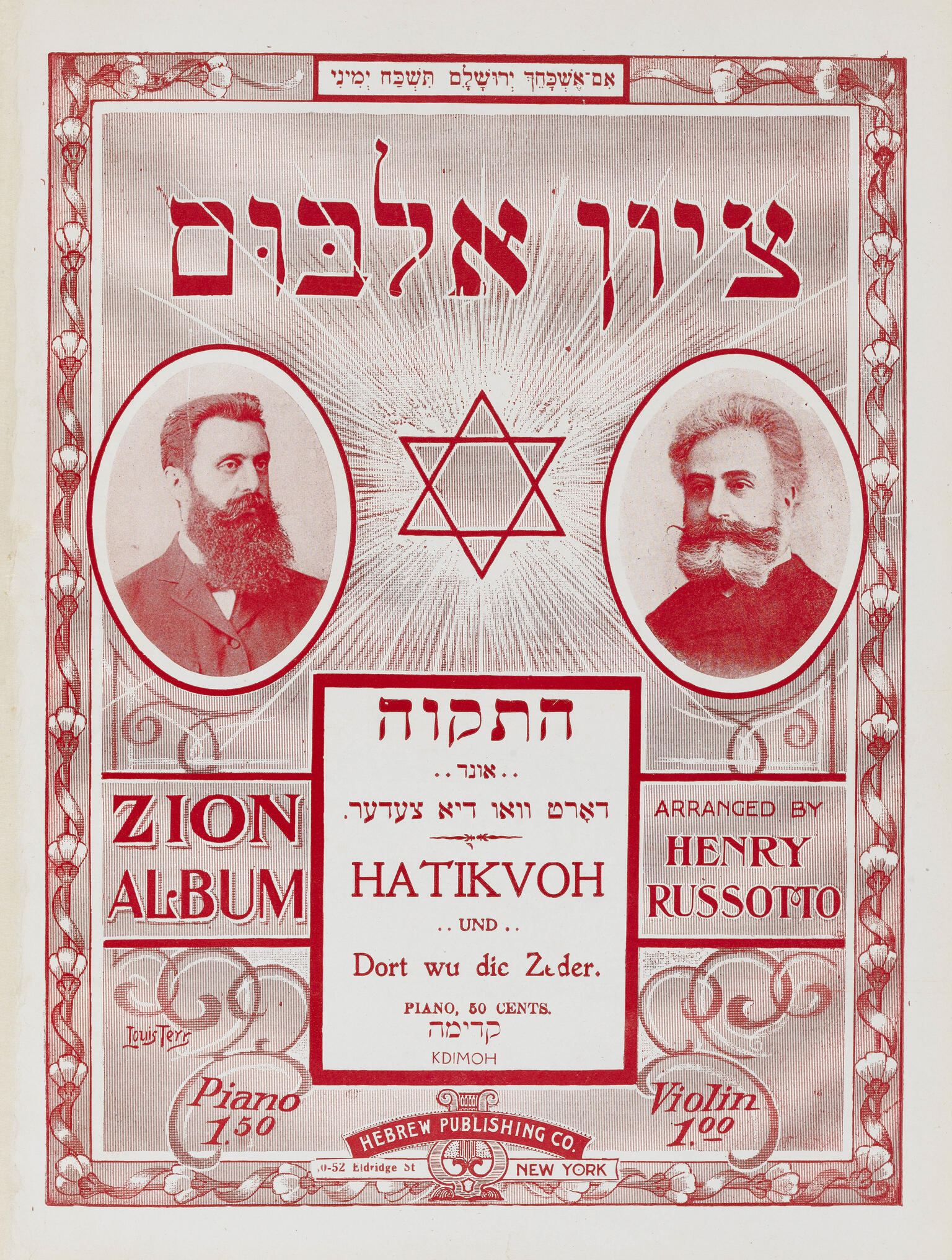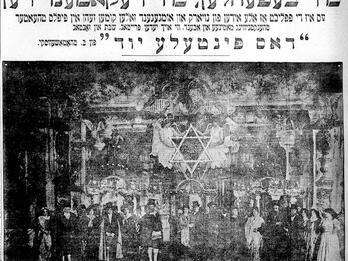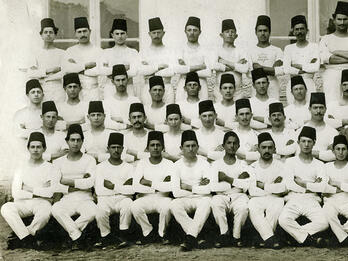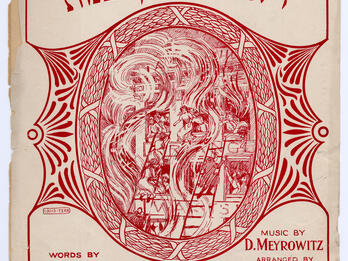Hatikvah (The Hope)
Cover of sheet music for “Hatikvoh” (The Hope) and “Dort vu die tseder” (There Where the Cedars Are). “Hatikvoh,” or “Hatikvah,” is based on Naftali Hertz Imber’s poem, “Tikvatenu” (Our Hope), first written in 1877/78 in Romania and later revised in Palestine. It became the national anthem of Israel. Henry Russotto’s publishing house was the first to own the rights to a notated arrangement of the musical setting for “Hatikvah.” A portrait of Theodor Herzl is on the left.
Credits
Hatikvah (The Hope). Poem by Naftali Hertz Imber, arranged by Henry A. Russotto (New York: Hebrew Publishing Co., ca. 1910). Courtesy Gross Family Trust Collection.
Published in: The Posen Library of Jewish Culture and Civilization, vol. 7.






